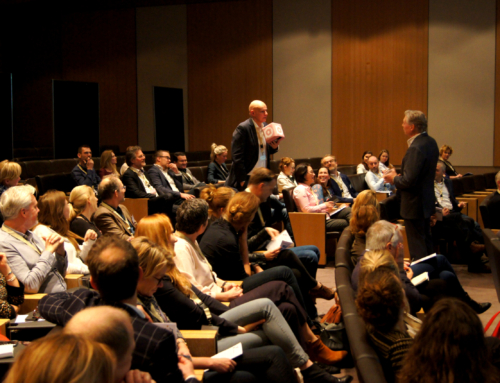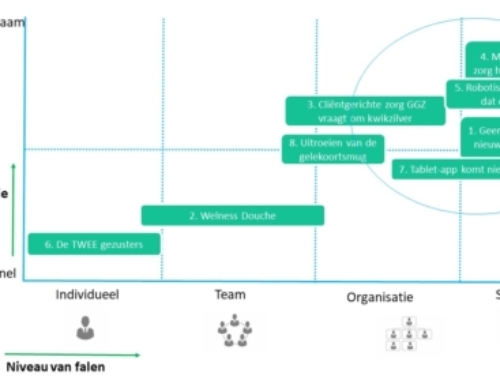Pamsonkhano mwezi watha pazakumwa ndi zakudya zala, Katswiri wina wa ku Banki Yadziko Lonse anafotokoza nkhani ya mmene akazi oluka nsalu m’dera lakutali la Amazonia ku Guyana anadzipezera okha bizinesi yopambana yapa intaneti yogulitsa ma hammocks opangidwa mwaluso kwambiri. $1,000 kagawo.
Kampani ya mafoni a m’boma inali itapereka malo olumikizirana mauthenga omwe anathandiza amayiwo kupeza ogula padziko lonse lapansi, kugulitsa ku malo ngati British Museum. Munthawi yochepa, ngakhale, amuna awo anakoka pulagi, akuda nkhaŵa kuti chiwonjezeko chadzidzidzi cha akazi awo chinali chiwopsezo ku ulamuliro wamwambo wa amuna m’chitaganya chawo.
Kuthekera kwaukadaulo kubweretsa zabwino kwa anthu kumatamandidwa kwambiri, koma zolephera zake, mpaka pano, sizinakambidwe kawirikawiri ndi osapindula omwe amatumiza. Zomwe zidachitika ku Guyana mwina sizidawonekere popanda FailFaire, chipani chobwerezabwereza chomwe otenga nawo mbali amasangalalira kuwulula zofooka zaukadaulo.
"Tikutenga ukadaulo wophatikizidwa ndi zomwe timafunikira komanso chikhalidwe chathu ndikuziyika m'maiko omwe akutukuka kumene, amene ali ndi makhalidwe ndi zikhalidwe zosiyana kwambiri,"Soren Gigler, katswiri wa Banki Yadziko Lonse, adauza omwe anali pamwambo wa FailFaire pano mu Julayi.
Kuseri kwa zochitikazo kuli gulu lopanda phindu lochokera ku Manhattan, MobileActive, gulu la anthu ndi mabungwe omwe akuyesetsa kukonza miyoyo ya anthu osauka kudzera muukadaulo. Mamembala ake akuyembekeza kuti mayeso ang'onoang'ono a zolephera asintha kukhala zokumana nazo zophunzirira - ndikuletsa ena kulakwitsa zomwezo..
"Ndikuganiza kuti timaphunzira kuchokera ku kulephera, but getting people to talk about it honestly is not so easy,” said Katrin Verclas, a founder of MobileActive. “So I thought, why not try to start conversations about failure through an evening event with drinks and finger foods in a relaxed, informal atmosphere that would make it seem more like a party than a debriefing.”
There is also a prize for the worst failure, a garish green-and-white child’s computer nicknamed the O.L.P.C. — for One Laptop Per Child — a program that MobileActive members regard as the emblem of the failure of technology to achieve change for the better. When Ms. Verclas held it up during last month’s party, the room erupted in laughter. (Jackie Lustig, a spokeswoman for O.L.P.C., lati bungweli silikuona kuti pulogalamu yake yalephera.)
Ndi mphoto pamaso pake, Tim Kelly, katswiri wa zaukadaulo ku World Bank yemwe anali atangobwera kumene kuchokera ku South Africa, adadzipeza yekha kutsogolo kwa chinsalu chowonetsera zomwe zinkawoneka ngati mzere wa mbale ya spaghetti ndi nyama za nyama koma kwenikweni kunali kuyesa kufotokoza maudindo ndi maubwenzi a anthu ambiri omwe ali mu Global Capacity Building Initiative., pulogalamu yomwe cholinga chake ndi kupanga mfundo zolimba komanso malo owongolera kuti alimbikitse kukula kwa intaneti m'maiko omwe akutukuka kumene. "Iyi ndi nthawi yamadzulo pomwe ndimadzifunsa mwadzidzidzi chifukwa chomwe ndidalola kuti ndiyankhulepo," Bambo. Kelly anatero.
Adapitilizabe mwamasewera. One big problem with the project is that three groups raising money for it were more interested in raising money for themselves, Mr. Kelly anatero. “One raised money and when it finished doing that, took the money and went off and did its own work," Bambo. Kelly anatero.
The initiative had too many “players,” he continued. Donor countries wanted vastly different things. It was way too complex, he said, gesturing at the spaghetti bowl.
Next time, he said, he would advocate for an initiative that matched specific donors to specific projects and not work so hard to be all things to all people.
His eight minutes of torture over, Mr. Kelly returned to his chair, looking somewhat relieved.
Mr. Kelly’s employer, the World Bank, sponsored the event here last month.
“The idea is that not only should we be open about what we’re doing, but we should also be open about where we learn and our mistakes,” said Aleem Walji, practice manager for innovation at the World Bank. “The cost of not doing so is too high.”
Mr. Walji said he was surprised to find, when he joined the bank from Google last fall, that mistakes were rarely discussed, so different from the for-profit world, where failures are used to spur innovation.
Google, Mwachitsanzo, has blogged about the failure of its Google Wave application on Aug. 4., saying that while it had “numerous loyal fans, Wave has not seen the user adoption we would have liked.”
“Wave has taught us a lot,” wrote Urs Hölzle, senior vice president for operations at Google.
Mr. Walji ananena kuti “makampani abizinesi amalankhula za kulephera momasuka komanso mosapita m’mbali,” pomwe dziko lopanda phindu "liyenera kuda nkhawa ndi opereka ndalama omwe safuna kulumikizidwa ndi kulephera komanso opindula omwe sangapindule ndi kuvomera kulephera."
Chotsatira, pambuyo pa Mr. Kelly, anali Mahad Ibrahim, wofufuza yemwe ntchito yake idavomerezedwa ndi boma la Egypt ngati gawo la Fulbright Scholarship, idathandizira kuwunika pulogalamu ya boma la Egypt yofalitsa ma telefoni m'dziko lonselo kuti athe kugwiritsa ntchito intaneti. Pulogalamuyi yakula kuposa 2,000 malo oterowo, kuchokera 300 mu 2001.
Koma manambala okha akhoza kunyenga. Mr. Ibrahim adayamba kafukufuku wake poyitana malowa. “Mafoni sanagwire ntchito, kapena muli ndi golosale,” adatero.
Anapita ku Aswan, where government records showed 23 telecenters. He found four actually working.
Mr. Ibrahim concluded that the program had failed because it did not take into account the rise of Internet cafes in Egypt and because the government had, in most cases, picked as partners nonprofit groups whose primary mission had little or nothing to do with the Internet, communications or technology.
The failure, in other words, was in not understanding the ecosystem in which the telecenters would be operating. “We dump hardware down and hope magic will happen,” said Michael Trucano, senior information and education specialist at the World Bank, whose offering to FailFaire was a list of the 10 worst practices he had encountered in his job.
His presentation clearly resonated with the attendees, who voted him the winner of the O.L.P.C.
“I guess it’s a dubious distinction," Bambo. Trucano said later, “but I thought it was an enjoyable evening and a useful way to talk about a lot of things that civil servants don’t like to talk about.”
This article has been revised to reflect the following correction:
Correction: Ogasiti 19, 2010
An article on Tuesday about a recurring party whose participants revel in revealing technology’s shortcomings gave an incorrect affiliation from the party’s host for Mahad Ibrahim, a researcher who had helped assess an Egyptian government program to roll out telecenters across the country to increase access to the Internet. Mr. Ibrahim’s research was approved by the government of Egypt as part of a Fulbright Scholarship; he was not hired by the Egyptian government.
http://www.nytimes.com/2010/08/17/technology/17fail.html?_r=3&hp




